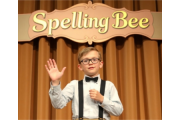The Lambs were a prolific happy family. Silas was the youngest of four boys and three girls. As the runt of the litter, he was spoiled, especially by his doting sisters. No-one could call him a deprived child, but unlike the sunny dispositions of all the other Lamb children, he was born gloomy, and became more sombre and suspicious as the years went by. He seldom smiled, did not laugh at jokes, and regarded his siblings with deep skepticism, even when they came to him with little gifts and endearments. He seemed at best to tolerate his family, who seemed curiously untroubled by his reactions to them. His favourite word for years was a monosyllable: “No.” Except for the odd child with whom he maintained a companionable silence in the neighbourhood sandpit, he was happiest alone. He would play there contentedly with plastic trucks, and share spades and buckets without exchanging a word. Parents of other children sometimes wondered if he lacked the power of speech, until he uttered a loud, emphatic and characteristic “No!” The offending child quickly gave him back his truck. He was not autistic, and did well enough in school, but would-be friends were often put off by his apparent unfriendliness. His parents smiled at his characteristic raised eyebrow and quizzical expression, mistakenly believing them to be childhood idiosyncrasies he would eventually grow out of. “He’s a young man who thinks!” insisted his mother, when he frowned for a family photograph. “He’ll be a professor when he grows up,” she added hopefully. His father, by contrast, thought he bore too much of the weight of the world upon his young shoulders, recalling how he seemed riveted by any account of accident or misadventure. At the age of three, he interrupted an amusing story of his uncle’s about a cruise he once took in the Caribbean with the abrupt question, “Did the ship sink?” He was not trying to be funny. He seemed to have a preternaturally pessimistic view of life that no-one could jolly him out of. Consequently, Mr. Lamb advised the other family members to “try to keep things light” for Silas.
Silas grew up to be an aloof and introverted, but capable if monosyllabic, public servant. Most colleagues found him dull and tended to avoid him unless duty compelled them to confer with him. One or two female co-workers thought him an interesting mystery, but found their approaches rebuffed by his failure to respond to their overtures, and soon gave up the effort. He did not marry, lived at home until he was thirty, had one or two friends who worked, it was believed, “somewhere else” and continued to keep himself to himself. He spent all of his free time at the library or cinema, and never at a pub, park, or beach, places where he might meet people. He shopped early in the morning or late at night to avoid crowds. He never expressed any overtly anti-social feelings; it was just… well, just that he was Silas, and Silas was unique, an odd bird. At meetings, he kept his own counsel. When a loquacious colleague publicly rebuked him at a conference for his reticence and offered the joke that he should have been named ‘Silence’ Lamb, Silas responded drily that “empty vessels make the most sound.” The silence that followed was deafening.






Ian5 years ago
In my humble opinion he missed out on a lot of life. However it is/was his life and if he was happy, what business is it of ours. He didn’t get into trouble and seemed very happy being alone. Few of us have mastered that ability or even want to try.
Peter Scotchmer5 years ago
Thanks for this, Ian.